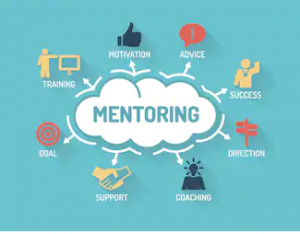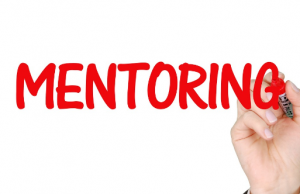15 Characteristics of a Successful Mentor
PRESENTED BY PAYSTUBMAKR.COM
Mentoring grew from informal assigning of one of the old employees as a buddy to a new employee, and going together for lunch and teaching the new employee a few lessons about how to succeed in the workplace. The buddy had no training about mentoring. The welcoming of new employees was made as a friendly act with no responsibility knowledge how to do it.

Welcoming the new employee has two levels, the official announcement of his joining the workforce and the presentation to his managers and teammates is the first step.
The second step is more complicated, starting at the hiring process you have to take some measures that will help you to integrate and retain your new hired worker, your way of improving the newly hired person will affect both futures after starting working.
The Importance of a Mentor During The New Employee Orientation Process
Below we will review some recommendations that will help you welcome your new employee.
The welcome steps will continue into the employment of your newly hired employee and help create a successful employee.
Helping the new employees to integrate into the modern workplace was not in the buddy’s job description or the employer’s expectation. Today it is different; the employers are looking for better results from more professional mentoring made by professional mentors.
Organizations today are looking for fast track integration of the new staff they hired recently. The need of today employers for mentors grew. New employees are given more professional mentoring help. The goal is to jump-start the learning curve and make the integration faster and stronger gaining retaliation of good workforce.

Mentors are key to effective new-hire training
Here are the characteristics to look for in employees that you are going to ask to join your mentoring team that will take care of new employees or new to the department they are working now.
These characteristics will differ somewhat from old informal style mentoring by buddies. Both types of mentoring will need the following characteristics. Those characteristics are required to the old informal style mentoring by buddies. Both types of mentoring will need the following characteristics.
5 Tips for Mentoring New Hires in Customer Success
Use a Formal Mentor Process
A formal mentoring program will look for the transmission of a package of knowledge and cultural teaching. This is what the company will expect from the mentor relationship with the mentee. The mentor is expected too to participate in the evaluation of the mentee. The employee that takes the job of a mentor is expected to assess the new employee fit to the organization culture. The role of a mentor is to evaluate the new worker.
The mentor with his package of knowledge, must pass it to the mentee, the mentor must understand if the employee is learning the staff he is teaching, and the new employee advances toward success in his new job if he is a problem with the mentee capacity to learn the new information and culture of the new workplace. If the mentor notice that the new employee is not learning he would have to report the HR.
86,622 viewsJun 30, 2010, 04:00 pm Seven Ways To Be An Effective Mentor

Seek an Informal Mentor
Some cases are different. The employee will look for an informal mentor for the area of expertise that the employee is missing and need to learn or explore. This case is purely coaching or teaching with no assessment responsibilities.
Characteristics of Successful Formal Mentors
-
They are directed to mentor another employee and are in charge of employee growth, improvement, and cultural integration.
-
They must have the necessary knowledge of the job content to teach it to the new employee up to a reasonable level of expertise.
-
The organization’s norm is known to the mentor enough to be able to teach the company’s culture to the new worker.
-
They must show that they are honest and have the integrity, respect, and responsibility for the stewardship required as a mentor.
-
Effective communication skills are needed to be able to do the job of a mentor; it must be verbally and non verbally. Talking and writing the summaries is the heart of the mentor’s role.
-
The will to help and develop another employee, to be his guide hear his feedback, and sometimes insist on a high level of performance or the right direction.
-
The trait to initiate new ideas, and ear the employee’s willingness and capacity to changes his or her performance on a continually changing work environment.
-
Emotional intelligence is one crucial trait a mentor must be able to use while he or she are mentoring the new employees. Without being emotionally intelligent, it is hard to be sensitive to the mentee.
-
A good mentor will come from those employees that co-workers and managers rated as successful in their job as well as good navigators in the company’s culture.
-
They can show an excellent professional network and relationship online and offline.
-
The mentor should enough time and the will of spending it with the mentee
-
I have the will and courage to communicate failures as well as successes to the mentee.
-
I am being open to spending time with diverse personalities who may not share the same background, values, and goals.
-
They have the courage necessary to start a conflict in favor of the employee’s successful integration with the organization. On the contrary, they will need the courage to report that the mentee will not succeed in this workplace.
-
He is that frank to say that a relationship is not working without thinking of his ego or assign the blame to someones else.

Selecting this kind of people to be your mentors will ensure you the success of your mentoring program. Your new employees will remain with you for a long time.
paystumbmakr.com team thanks you for a visit and reading this blog


